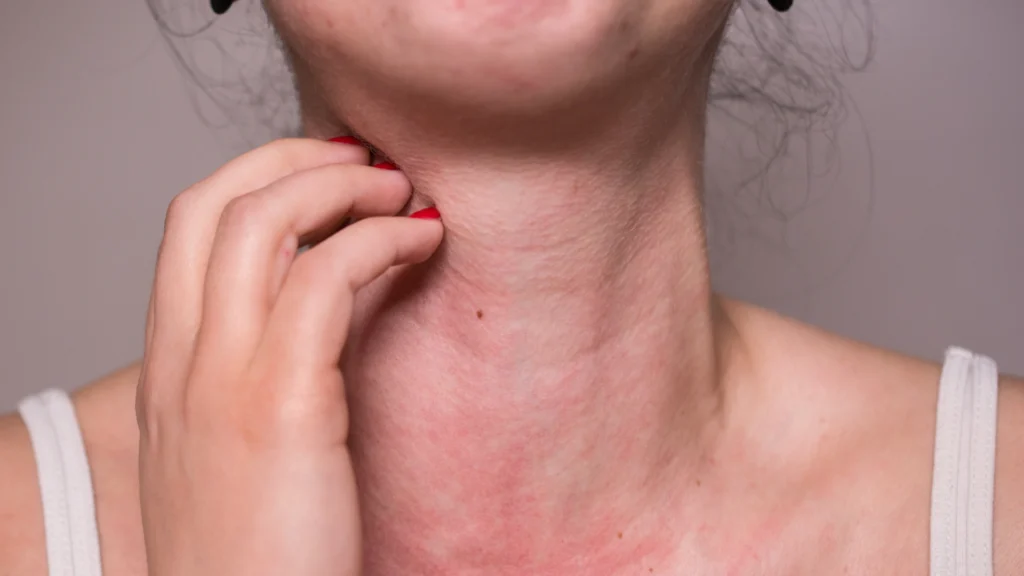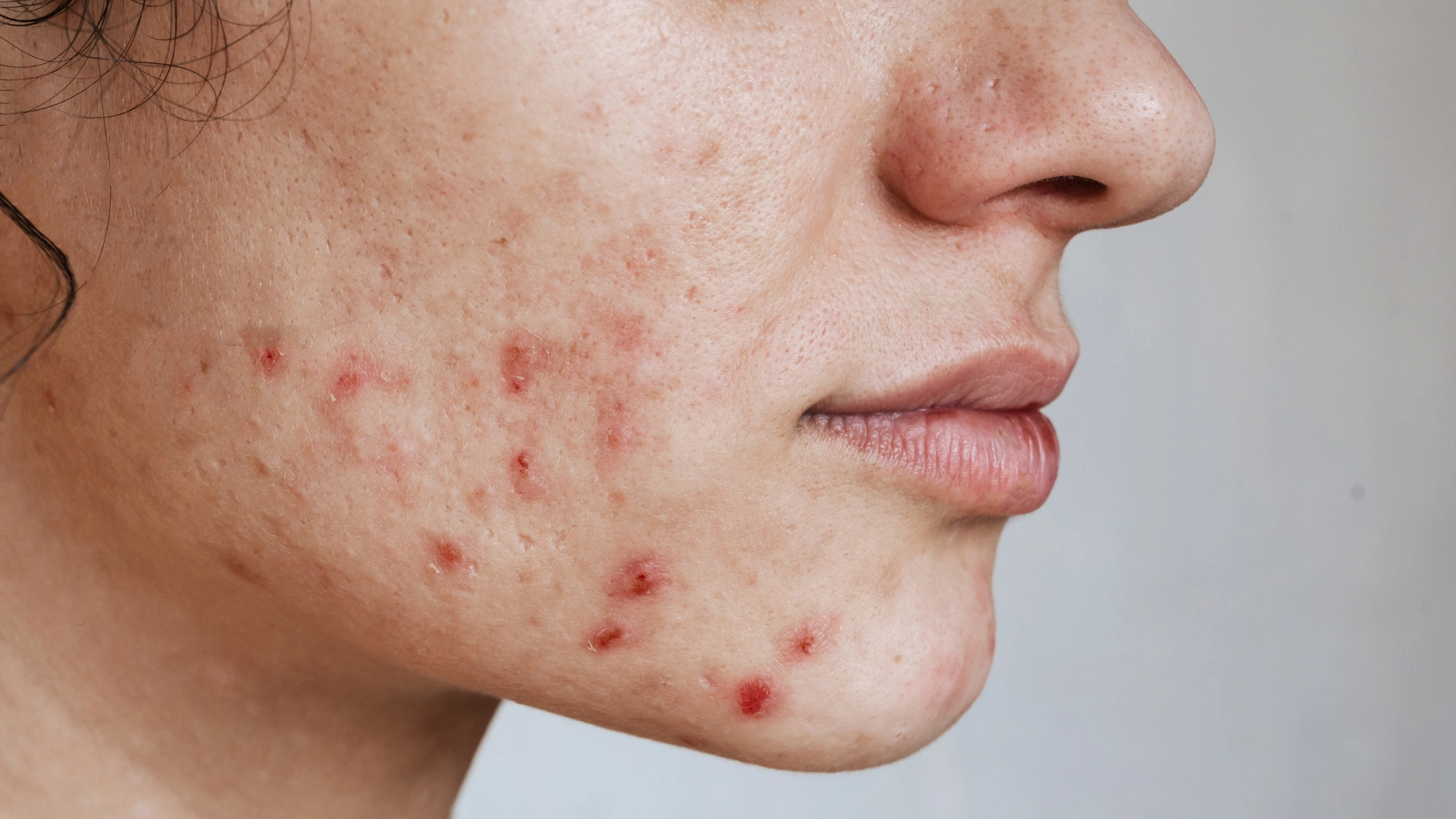
Over 100 million people in the U.S. suffer from allergies every year, with symptoms ranging from mild annoyances to severe, life-threatening reactions. Whether it’s seasonal pollen allergies or reactions to foods, medications, or pet dander, the discomfort caused by these allergies impacts daily life. As these allergic reactions become more common, many people are seeking alternatives to traditional treatments, which often come with side effects.
In response to the growing concern, holistic remedies have emerged as a viable option for managing allergies naturally. These approaches focus on reducing inflammation, improving immune function, and addressing underlying causes. Backed by doctors for their potential effectiveness, holistic treatments like dietary changes, herbal remedies, and lifestyle adjustments offer a promising way to alleviate allergy symptoms without relying solely on medication. In this guide, we’ll explore doctor-approved holistic remedies to help manage allergies naturally and effectively.
Allergies: Symptoms and Reaction – A Quick Look
Allergic reactions occur when the immune system overreacts to a substance (allergen) that is usually harmless, such as pollen, dust mites, or certain foods. This overreaction triggers the release of chemicals like histamine, which causes inflammation and various symptoms. Common allergic reactions include sneezing, itchy eyes, runny nose, skin rashes, and difficulty breathing. In more severe cases, anaphylaxis can occur, which requires immediate medical attention. Symptoms can range from mild, like a stuffy nose, to life-threatening, such as throat swelling or trouble breathing.
For many, seasonal allergies occur when specific allergens, such as pollen or mold, are present in the environment. Others may experience chronic symptoms throughout the year due to persistent allergens like dust or pet dander. Regardless of the type, the body’s immune response triggers these uncomfortable reactions. Understanding these symptoms is important for identifying the most effective treatments, including holistic remedies, which aim to reduce inflammation and support the immune system.
Why Consider Holistic Remedies?
While conventional treatments, such as antihistamines, steroids, and decongestants, are commonly prescribed to manage allergy symptoms, they often come with side effects. Antihistamines can cause drowsiness, dry mouth, and even heart palpitations. Long-term use of steroids may lead to an increased risk of infections, weight gain, and bone thinning. Given these potential downsides, many individuals are exploring holistic remedies to manage their symptoms more naturally.
Holistic approaches focus on reducing inflammation and enhancing the body’s natural defenses. These remedies, such as dietary changes, herbal treatments, and lifestyle modifications, are typically associated with minimal side effects.
How to Stop Allergies Immediately Naturally: Doctor-Approved Remedies
When allergy symptoms strike, many people seek immediate relief. While conventional medications like antihistamines are common, holistic remedies offer natural alternatives that focus on reducing inflammation and supporting the immune system. Below are several doctor-approved, natural remedies that can help you manage allergy symptoms right away.
Dietary Adjustments
Adjusting your diet is one of the most effective ways to reduce allergy symptoms. Certain foods have anti-inflammatory properties that help calm the immune system’s response to allergens. These dietary strategies also align with functional foods, which focus on enhancing health beyond basic nutrition.
Anti-Inflammatory Foods

Incorporating anti-inflammatory foods such as turmeric, ginger, leafy greens, and fatty fish into your diet can significantly reduce allergy symptoms. These foods contain compounds like curcumin (found in turmeric) and omega-3 fatty acids (found in fatty fish) that help lower inflammation. This eases allergic reactions and promotes overall health by supporting the immune system. Studies show that people who regularly consume anti-inflammatory foods report fewer allergy-related symptoms, including nasal congestion and skin irritation.
Elimination Diet
An elimination diet can help you identify and avoid food allergens contributing to your allergy symptoms. This diet removes common allergens such as dairy, gluten, or certain fruits and vegetables and then gradually reintroduces them to observe any reactions. This is often recommended in functional medicine for weight loss, where inflammation and dietary triggers are addressed holistically. Starting an elimination diet should be done with care and preferably under the guidance of a healthcare professional.
Probiotics
Gut health plays a vital role in immune function, and studies show that maintaining a healthy balance of gut bacteria can reduce allergic reactions. Probiotics, beneficial bacteria, can help support the immune system and reduce inflammation. Foods like yogurt, kefir, and sauerkraut are rich in probiotics and can help alleviate allergy symptoms by regulating the immune response. This strategy also aids in achieving natural hormone balance as part of overall immune health.
Natural Supplements
Natural supplements can also significantly help manage allergies. These supplements reduce inflammation, stabilize histamine release, and support the immune system.
Quercetin
Quercetin is a powerful antioxidant in foods like onions, apples, and berries. It helps stabilize histamine release, reducing allergy symptoms such as sneezing, itching, and swelling. Quercetin has been studied for its ability to prevent the release of histamine, the chemical responsible for many allergic reactions. A common dosage recommendation is 500 mg twice daily, but it’s important to consult a doctor before starting any supplement regimen. Regular use of such natural approaches also ties into natural ways to boost the immune system, making it a multi-benefit option for managing allergies.
Butterbur
Butterbur is an herb that effectively reduces allergic rhinitis symptoms. Research has demonstrated that butterbur extract can help block the release of histamine, making it a natural alternative to antihistamines for those with seasonal allergies. It has been found to work similarly to traditional allergy medications but without the sedative effects. When using butterbur, it’s essential to choose a purified version to avoid potential side effects, and the recommended dosage is typically 50-75 mg twice a day.
Vitamin C
Vitamin C is well-known for its immune-boosting properties but is also a natural antihistamine. Studies have found that vitamin C can reduce histamine levels in the body, relieving common allergy symptoms like sneezing, itching, and nasal congestion. Foods rich in vitamin C, such as citrus fruits, bell peppers, and broccoli, can help reduce inflammation and strengthen the immune system. For those seeking a higher dose, vitamin C supplements also effectively support allergy management.
Herbal Remedies
Herbal remedies have long been used in various cultures for their anti-inflammatory and immune-boosting properties. These natural treatments can relieve allergy symptoms without the need for pharmaceuticals.
Stinging Nettle
Stinging nettle is a potent herbal remedy known for its anti-inflammatory properties. It has been used for centuries to treat allergies, particularly hay fever, due to its ability to block the body’s histamine receptors. Research suggests that stinging nettle can help reduce the symptoms of allergic rhinitis, such as sneezing and nasal congestion. It is typically consumed in tea or as a supplement, with recommended dosages ranging from 300-500 mg daily.
Peppermint Tea
Peppermint tea is often used to relieve nasal congestion and soothe sore throats, making it an excellent choice for allergy sufferers. The menthol in peppermint acts as a natural decongestant, helping to clear the sinuses and reduce inflammation. Drinking peppermint tea or inhaling steam infused with peppermint oil can quickly relieve allergy symptoms like a stuffy nose or sore throat. It’s also a great option to reduce anxiety naturally while alleviating respiratory symptoms.
Eucalyptus Oil
Eucalyptus oil is another effective remedy for nasal congestion. When used in steam inhalation, eucalyptus oil can help open the airways, making breathing easier. Its anti-inflammatory properties help reduce sinus pressure and promote better airflow. Simply add a few drops of eucalyptus oil to a bowl of hot water, lean over it with a towel over your head, and inhale deeply for quick relief.
Acupuncture

Acupuncture is a traditional Chinese medicine practice that involves inserting thin needles into specific points on the body to promote healing. Doctors are increasingly recommending it to alleviate allergy symptoms by reducing inflammation and enhancing immune function.
Acupuncture stimulates the body’s meridians and promotes the flow of energy, or “qi,” which helps restore balance and reduce allergy symptoms. Studies suggest that acupuncture can help relieve nasal congestion, sneezing, and other allergic reactions by regulating immune responses and reducing inflammation.
Doctors often recommend acupuncture for individuals who have not found relief with conventional allergy treatments. Acupuncture can effectively manage seasonal allergies and hay fever, especially when combined with other holistic remedies. Treatment frequency may vary, but many practitioners suggest starting with weekly sessions during peak allergy seasons for optimal results.
Lifestyle Modifications
Lifestyle changes can significantly impact the severity of allergy symptoms. Adopting stress management techniques and incorporating regular exercise can help your body handle allergies more effectively.
Stress Management
Stress exacerbates allergy symptoms by triggering the release of cortisol and other stress hormones, which can increase inflammation. Practices like yoga, meditation, and deep breathing can help reduce stress levels and improve your body’s response to allergens. Managing stress through these techniques can reduce the frequency and intensity of allergic reactions.
Regular Exercise
Regular physical activity plays a vital role in immune system regulation. Exercise helps reduce inflammation and improves lung function, making breathing easier for individuals with allergies. Walking, swimming, or cycling can help improve respiratory function and reduce allergy symptoms, especially when practiced regularly.
Air Quality Management
Maintaining good air quality in your home is essential for allergy relief. Using air purifiers, keeping windows closed on high-pollen days, and regularly cleaning your home can reduce exposure to allergens. Air purifiers, in particular, are effective at removing pollen, pet dander, and dust from the air, making your living environment safer for allergy sufferers.
How to Reduce Allergy Symptoms: 8 Tips to Consider
When it comes to managing allergies, small changes in your daily routine can have a significant impact. From adjusting your home environment to making mindful dietary choices, here are eight doctor-approved tips to help reduce allergy symptoms effectively.
Use Air Purifiers in Your Living Spaces
Air purifiers are an essential tool for reducing allergens in your home. These devices filter out particles like pollen, dust mites, and pet dander, which are common triggers for allergic reactions. HEPA filters, in particular, are highly effective at trapping tiny particles, improving air quality, and reducing symptoms such as sneezing, congestion, and itchy eyes. Regularly using air purifiers, especially in bedrooms and living areas, can help keep allergens at bay and promote better breathing.
Keep Windows Closed During High-Pollen Days
Pollen is a major seasonal allergen that can aggravate symptoms, especially during spring and fall. On high-pollen days, it’s crucial to keep windows closed to prevent pollen from entering your home. This simple adjustment can significantly reduce your exposure to pollen and help keep symptoms like sneezing and nasal congestion in check. Monitoring pollen levels in your area using weather apps or online resources can help you plan when to keep windows shut and minimize allergen exposure.
Wash Bedding Weekly in Hot Water
Bedding, including sheets, pillowcases, and blankets, can accumulate dust mites, pet dander, and other allergens over time. Washing your bedding weekly in hot water (at least 130°F/54°C) kills dust mites and removes allergens that can trigger symptoms. Additionally, consider using allergen-proof covers for pillows and mattresses to prevent dust mites from settling in these areas, further reducing exposure while you sleep.
Choose Hypoallergenic Bedding Materials
Choosing hypoallergenic bedding materials, such as pillows and mattresses made from natural or synthetic fibers that resist allergens, can provide significant relief. Materials like memory foam or latex tend to be less hospitable to dust mites and mold compared to traditional cotton or down bedding. Opting for hypoallergenic bedding is especially beneficial for individuals who suffer from year-round allergies caused by indoor allergens.
Maintain a Clean and Dust-Free Environment
Regular cleaning is essential for reducing allergens in the home. Dusting, vacuuming, and wiping down surfaces can help remove pollen, pet dander, and dust mites. Using a vacuum with a HEPA filter ensures that allergens are trapped and not released back into the air. Additionally, cleaning frequently touched areas, such as doorknobs, light switches, and remote controls, can help maintain a clean environment and reduce allergen exposure.
Eat Vitamin-C-Rich Foods
Vitamin C is a powerful antioxidant that helps regulate the immune system and reduce histamine production, making it an effective natural remedy for allergies. Consuming vitamin-C-rich foods like citrus fruits, strawberries, bell peppers, and broccoli can help alleviate symptoms like runny noses and sneezing. Studies have shown that increasing vitamin C intake can reduce the severity of allergic reactions by stabilizing the immune response and decreasing inflammation.
Sinus Rinses
Using a sinus rinse, such as a Neti pot or saline spray, is an effective way to clear allergens from the nasal passages and provide immediate relief from congestion. Saline rinses help flush out mucus, pollen, and dust, reducing inflammation and relieving sinus pressure. Performing a sinus rinse regularly can keep your nasal passages clean and free from irritants, helping to reduce the frequency of allergic reactions and providing quick relief from symptoms.
Functional Medicine’s Approach to Allergies
Functional medicine doctors often recommend personalized strategies to address allergies’ root causes. Their treatments focus on balancing the immune system, reducing inflammation, and optimizing overall health. For those dealing with chronic allergies, this approach can be transformative, especially when integrated with functional medicine cost considerations, as treatments can often be tailored to fit individual needs.
Using a combination of nutritional support, detoxification strategies, and targeted supplementation, functional medicine seeks to enhance the body’s natural ability to regulate allergic reactions. For example, practitioners might recommend dietary changes, such as eliminating processed foods or increasing anti-inflammatory foods, to reduce the immune system’s overreaction to allergens. Functional medicine may also include strategies like improving gut health, which plays a critical role in immune function, and balancing hormones that influence inflammatory responses.
Debunking Myths About Holistic Allergy Remedies
As the interest in holistic remedies for allergies grows, so do the myths and misconceptions surrounding these natural approaches. One common misconception is that “natural” means “safe” and that herbal or dietary remedies are always risk-free. While holistic treatments can be beneficial, they can also have side effects or interact with other medications. It’s essential to approach these remedies with the same caution and research as conventional treatments.
Another myth is that holistic remedies work instantly. While many people experience relief from symptoms relatively quickly, some holistic treatments, such as dietary adjustments or acupuncture, require consistent use over time to be effective. There is also a belief that holistic treatments can replace conventional allergy medications entirely, which is not always the case. While holistic approaches can significantly reduce symptoms and improve overall health, they are often most effective when used in conjunction with traditional treatments, especially for severe allergies. It’s crucial to consult a healthcare provider before starting any new treatment, as what works for one person may not work for another.
Are You Making Your Allergies Worse?
It’s easy to inadvertently make your allergies worse without realizing it. Certain habits or environmental factors can exacerbate symptoms, making it harder to manage allergies. For example, keeping windows open during high-pollen days or neglecting to wash your bedding frequently can increase exposure to allergens. Similarly, smoking or exposure to secondhand smoke can inflame the airways, worsening symptoms like coughing and wheezing. Poor indoor air quality, caused by dust, pet dander, or mold, can also contribute to persistent allergy problems.
Lifestyle choices such as a poor diet, lack of exercise, and high stress levels can also impact the immune system’s response to allergens. Eating inflammatory foods, such as processed foods high in sugar, or failing to manage stress can worsen allergic reactions. Reducing allergen exposure, improving air quality, maintaining a healthy diet, and practicing stress management techniques are essential steps in minimizing the risk of making your allergies worse.
Is It Possible to Get Rid of Allergies Forever?

The possibility of “curing” allergies permanently is a subject of debate among experts. Currently, there is no known cure for allergies, but some treatments may help reduce the frequency or severity of allergic reactions. For example, immunotherapy (allergy shots) works by gradually desensitizing the immune system to specific allergens, which can result in long-term relief for some individuals. However, this process is gradual and can take several years.
While some people may experience a reduction in allergy symptoms over time, particularly with lifestyle changes and holistic treatments, complete eradication of allergies is unlikely for most individuals. Holistic approaches can significantly improve quality of life by reducing the intensity of symptoms, but it’s essential to manage expectations and understand that allergies may not be fully eliminated. Ongoing maintenance through a combination of holistic remedies and medical treatments is typically necessary for long-term management.
The Best Natural Remedies for Seasonal Allergies
Seasonal allergies, often referred to as hay fever, can disrupt daily life with symptoms like sneezing, itchy eyes, and nasal congestion. Natural remedies can provide relief by addressing the root causes and reducing inflammation. Below are the best natural approaches to managing seasonal allergies effectively.
Use a Neti Pot for Nasal Irrigation
A Neti pot is a simple and effective tool for clearing allergens and mucus from your nasal passages. By flushing the nasal cavity with a saline solution, you can reduce inflammation and relieve congestion. This method is particularly helpful for clearing pollen and dust that accumulate in the nose during allergy season. To use a Neti pot, prepare a sterile saline solution, tilt your head over a sink, and gently pour the solution into one nostril, allowing it to drain out of the other. Regular use can significantly reduce allergy symptoms.
Consume Local Honey to Build Tolerance to Pollen
Consuming local honey may help desensitize your immune system to pollen in your area. The theory is that small amounts of pollen present in local honey can act like a natural form of immunotherapy, gradually reducing the immune system’s overreaction to airborne allergens. While more research is needed to confirm this effect, many people find that eating a teaspoon of local honey daily during allergy season helps ease symptoms over time.
Drink Peppermint Tea to Relieve Congestion
Peppermint tea is an excellent natural remedy for relieving nasal congestion and soothing irritated airways. The menthol in peppermint acts as a natural decongestant and anti-inflammatory agent, making it easier to breathe. Drinking a warm cup of peppermint tea can provide immediate relief from a stuffy nose and calm allergy-related sinus discomfort. Additionally, inhaling the steam from the tea enhances its decongestant effects.
Apply Eucalyptus Oil for Its Anti-inflammatory Properties
Eucalyptus oil is a powerful anti-inflammatory agent that helps open airways and relieve sinus congestion. Using eucalyptus oil in a steam inhalation is particularly effective. Add a few drops of eucalyptus oil to a bowl of hot water, lean over with a towel over your head, and inhale the steam deeply for about 5–10 minutes. This process not only clears nasal passages but also reduces inflammation in the respiratory tract.
Increase Intake of Omega-3 Fatty Acids to Reduce Allergy Symptoms
Omega-3 fatty acids, found in fatty fish like salmon, walnuts, and flaxseeds, have strong anti-inflammatory properties that can help reduce allergy symptoms. According to WINIT Clinic, omega-3s can modulate immune responses and decrease the severity of allergic reactions. Adding omega-3-rich foods to your diet or taking high-quality omega-3 supplements can support your immune system and alleviate inflammation caused by seasonal allergens.
Food Allergy Treatment at Home
Food allergies can trigger a range of symptoms, from mild hives to severe anaphylactic reactions. While it’s crucial to seek medical attention for severe reactions, mild food allergies can often be managed at home with several natural strategies. The first step is to avoid known allergens. Keeping track of foods that cause reactions and reading labels carefully can help prevent accidental exposure.
For those with milder symptoms, remedies like consuming probiotic-rich foods, which support gut health, may reduce sensitivity to allergens. Additionally, anti-inflammatory foods like turmeric and ginger can help reduce the inflammation that accompanies food allergies. For skin reactions like hives, applying cold compresses or using aloe vera gel may provide relief. However, it’s important to monitor any symptoms closely, as reactions can sometimes worsen over time.
How to Stop an Itchy Nose Naturally
An itchy nose is one of the most common allergy symptoms, often caused by allergens like pollen or dust. Natural remedies can help soothe the discomfort and reduce inflammation. One of the most effective methods is using saline nasal sprays or a Neti pot to flush out irritants from the nasal passages. These methods help hydrate the nasal passages and remove allergens like pollen or dust that cause itching.
Another helpful remedy is applying a cold compress to the nose or using essential oils like peppermint and eucalyptus, which have anti-inflammatory properties and can help clear the airways. Drinking plenty of water can also help keep your nasal passages moist, reducing irritation. Additionally, avoiding allergens by keeping windows closed and using air purifiers in the home can prevent exposure to common triggers.
When to See a Doctor
While many allergies can be managed with natural remedies, it’s important to recognize when medical attention is necessary. You should see a doctor if you experience severe symptoms like swelling of the throat or lips, difficulty breathing, dizziness, or a sudden drop in blood pressure, as these could be signs of anaphylaxis, a life-threatening allergic reaction.
Additionally, if you are unable to control your symptoms despite using over-the-counter medications or natural remedies, a doctor can help identify underlying triggers and recommend a more tailored treatment plan. Chronic or severe allergic reactions that interfere with daily life may require prescription medications or specialized treatments like immunotherapy (allergy shots).
How Do You Calm an Allergic Reaction Fast?
If you need to calm an allergic reaction quickly, the first step is to remove yourself from the allergen if possible. For example, if you are allergic to pollen, go indoors and close windows. For mild symptoms, antihistamines can help block the effects of histamine, the chemical responsible for many allergic symptoms.
However, if you prefer natural remedies, try inhaling steam infused with essential oils like eucalyptus or peppermint to help open up airways and relieve nasal congestion. Drinking water can also help flush out allergens from your system. For skin reactions, applying cold compresses or using aloe vera gel can soothe itching and reduce inflammation. For more severe reactions, particularly if you have difficulty breathing or swelling, seek immediate medical attention.
Are Holistic Remedies Safe for Children With Allergies?
Holistic remedies can be safe for children with allergies, but caution should be exercised. Natural remedies like dietary changes, probiotics, and certain herbs can be beneficial for alleviating mild allergy symptoms in children. However, it is essential to consult with a pediatrician before using any new treatments, especially when dealing with young children. Some herbal remedies may interact with medications or cause side effects, and certain essential oils can be too strong for young children.
Probiotic-rich foods, like yogurt, can support gut health and strengthen the immune system. Additionally, ensuring that children avoid common allergens and maintain a clean, allergen-free environment can help manage symptoms naturally. Always seek professional guidance to ensure the safety and appropriateness of any holistic remedy.
How Long Does It Take for Natural Remedies to Show Results?
The effectiveness and timeline for natural remedies to show results vary depending on the individual and the remedy being used. For some people, relief from symptoms such as nasal congestion or itchy eyes may be felt within a few hours of using remedies like saline nasal sprays or drinking peppermint tea.
Other natural treatments, such as dietary adjustments or acupuncture, may take longer to produce noticeable effects, often requiring consistent use over several weeks or months. For example, building up a tolerance to pollen by consuming local honey may take several months before results are felt. In general, while natural remedies can be highly effective for many people, it’s important to manage expectations and give the treatments time to work.
What Is the Strongest Natural Antihistamine?
The strongest natural antihistamine is quercetin, a flavonoid found in various fruits and vegetables, including onions, apples, and citrus fruits. Quercetin helps stabilize mast cells, preventing the release of histamine, which is responsible for causing allergy symptoms like sneezing, itching, and congestion.
Studies have shown that quercetin is effective at reducing inflammation and controlling allergic reactions. It can be found in supplement form or through food sources, and the typical recommended dosage is 500 mg twice daily. However, as with all supplements, it is important to consult with a healthcare provider before starting quercetin, especially for individuals with existing health conditions or those who are pregnant.
How Do You Flush Allergies Out of Your System?
Flushing allergens out of your system involves several strategies aimed at reducing the impact of allergens on your body. Drinking plenty of water is one of the simplest and most effective ways to flush out allergens, as it helps hydrate your body and supports kidney function, aiding in the elimination of toxins.
Using saline nasal irrigation with a Neti pot can also help flush out allergens and irritants from your nasal passages. Additionally, incorporating antioxidant-rich foods like citrus fruits, berries, and leafy greens into your diet can help support the immune system and reduce inflammation caused by allergens.
Which Vitamin Is Best for Allergies?
Vitamin C is widely regarded as one of the best vitamins for managing allergies. It acts as a natural antihistamine, helping to reduce histamine production in the body and alleviate symptoms like sneezing and itching. Studies have shown that increasing vitamin C intake can help lower allergy symptoms, particularly in people with hay fever or allergic rhinitis.
Foods like citrus fruits, strawberries, and bell peppers are rich in vitamin C, and supplementation can also be an effective way to boost intake. The recommended daily dose of vitamin C for allergy relief varies, but a typical dosage ranges from 500 to 1,000 mg daily, depending on individual needs.
What Is the Fastest Remedy for Allergies?
The fastest remedy for allergies often depends on the severity of the symptoms. For quick relief, antihistamines are the most commonly used option, as they block the effects of histamine and help alleviate symptoms like sneezing, itching, and nasal congestion. For those seeking a natural remedy, using a Neti pot or saline nasal spray can provide immediate relief by flushing out allergens from the nasal passages. Essential oils like eucalyptus or peppermint, when used in steam inhalation, can also help clear the sinuses and open airways quickly. However, for more severe reactions, it is important to seek immediate medical attention.
What Is the Chinese Herb for Allergies?
One of the most well-known Chinese herbs for allergies is astragalus. This herb is used in traditional Chinese medicine to strengthen the immune system and reduce inflammation. Astragalus has been shown to help alleviate symptoms of allergic rhinitis and hay fever by promoting better immune function and reducing histamine release. It is often used in combination with other herbs like licorice root to support overall health and immune resilience. Astragalus is available in various forms, including teas, capsules, and tinctures.
How to Cure Non-allergic Rhinitis Permanently?
Non-allergic rhinitis is a condition that causes symptoms similar to allergies, such as a runny nose, congestion, and sneezing but is not triggered by allergens. The condition can be caused by irritants like smoke, strong odors, or weather changes. While there is no permanent cure, lifestyle changes ,and holistic remedies can help manage the symptoms effectively. Regularly using saline nasal sprays, avoiding known irritants, and maintaining a clean environment can reduce the frequency and severity of symptoms.
How to Clear Histamine From the Body Quickly?
Clearing histamine from the body quickly can help relieve allergic symptoms. One of the most effective ways is by consuming natural antihistamines like quercetin and vitamin C, which help stabilize mast cells and reduce histamine production. Drinking plenty of water is also important, as it helps flush histamine out of the body through the kidneys. Avoiding histamine-rich foods like fermented foods, aged cheese, and alcohol can further reduce histamine buildup. For more immediate relief, using antihistamines or nasal sprays can quickly reduce the effects of histamine on the body.
Which Food Is the Most Antihistamine?
Certain foods have natural antihistamine properties, with one of the most effective being vitamin C-rich foods. Citrus fruits like oranges, lemons, and grapefruits are excellent sources of vitamin C, which helps reduce histamine production. Other foods like apples, onions, garlic, and leafy greens can also act as natural antihistamines due to their antioxidant and anti-inflammatory properties. Including these foods in your diet can help manage allergic reactions by stabilizing histamine levels in the body.
What Is the Root Cause of Chronic Rhinitis?
Chronic rhinitis is often caused by persistent inflammation in the nasal passages. The root cause can vary, but it is commonly linked to ongoing exposure to allergens, irritants, or infections. In some cases, chronic rhinitis is triggered by environmental factors like pollution, dust, or mold, while in others, it may be related to food sensitivities or an overactive immune response. Identifying and addressing the underlying cause of chronic rhinitis is essential for effective management, and holistic approaches such as dietary changes, stress management, and environmental control can help reduce symptoms.
Can Allergies Cause Nerve Damage?
While allergies primarily affect the immune system and respiratory system, prolonged or severe allergic reactions can sometimes lead to nerve-related complications. Chronic inflammation caused by allergies can irritate nerve endings, potentially leading to symptoms like headaches, facial pain, or nerve sensitivity.

In rare cases, untreated or severe allergies can trigger neurological symptoms, but this is not common. If you experience unusual nerve-related symptoms alongside your allergy symptoms, it’s important to consult with a healthcare provider to rule out other conditions.
Does Drinking Water Help With Allergies?
Drinking plenty of water can help manage allergy symptoms by keeping the nasal passages and throat hydrated. Hydration helps thin mucus, making it easier to clear allergens from the respiratory system. Additionally, drinking water supports kidney function, which aids in flushing allergens and toxins from the body. While water alone won’t resolve allergy symptoms, it can be an important part of an overall allergy management plan.
Do Allergies Damage Your Body?
Allergies themselves do not typically cause permanent damage to the body, but chronic, untreated allergic reactions can lead to complications. For example, long-term inflammation from untreated allergies can contribute to conditions like asthma, sinus infections, and sleep disturbances. Severe allergic reactions, like anaphylaxis, can cause immediate harm if not treated promptly. Managing allergies through medications or natural remedies can help prevent complications and maintain overall health.
How to Treat an Allergic Reaction While Pregnant?
Pregnant women need to be cautious when treating allergies, as some medications can be harmful to the developing fetus. Safe treatment options include using saline nasal sprays for congestion, drinking herbal teas like peppermint for relief, and ensuring proper hydration. It is important to consult with a healthcare provider before using any medications or supplements during pregnancy to ensure the safety of both mother and baby.
Can Allergic Reactions Affect Babies During Pregnancy?
Allergic reactions in pregnant women can potentially affect the baby, especially if the mother experiences severe allergic reactions or anaphylaxis. However, most mild allergic reactions do not cause harm to the baby. Pregnant women should be mindful of allergens and take appropriate steps to manage their symptoms to minimize any risks. Consulting a doctor about safe treatment options is essential for managing allergies during pregnancy.
Final Words
Managing allergies with holistic remedies can be an effective way to reduce symptoms and promote overall health. By incorporating dietary adjustments, herbal remedies, and lifestyle changes, many people find relief from allergies without relying heavily on conventional medications. However, it’s important to remember that the effectiveness of natural treatments can vary from person to person. If you’re struggling with severe symptoms or if holistic remedies aren’t providing enough relief, it’s important to consult with a healthcare provider to explore additional options.









